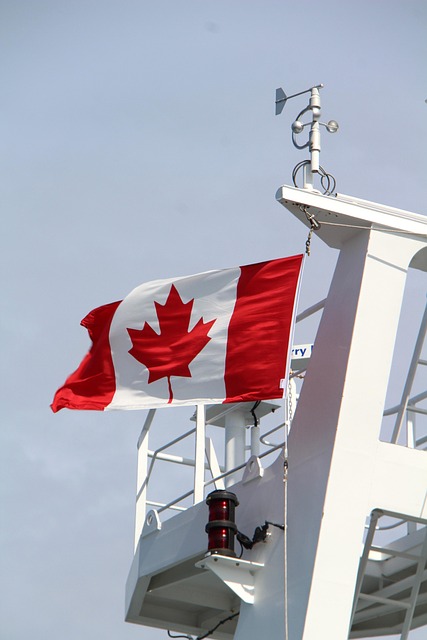Canada Under Pressure: Responding to Global Shifts
Donald Trump’s approach to international trade and diplomacy continues to have a significant impact worldwide, including in Canada. His strategy—threaten, provoke a reaction, and escalate further—has led many nations to impose counter-tariffs, prompting additional retaliatory measures from the U.S. in April. Trump has hinted that exemptions from these tariffs may be granted to countries that align with his policies, reinforcing his influence over global trade dynamics.
Trump is determined to reshape the global economy, and so far, he is succeeding. However, this shift may also present an opportunity for Canada. If our political leaders can focus on leveraging Canada’s strengths and capabilities, we can turn this challenge into a chance for economic growth and independence.
The Importance of Economic Diversification
As Canada enters an election season, political leaders are unveiling extensive policy platforms and making commitments on how they will govern if elected. However, the key question remains: How can we ensure accountability and follow-through on these promises?
One critical area that demands attention is economic diversification. Canada’s heavy reliance on the U.S. market has left us vulnerable to policy shifts south of the border. While political parties generally agree on the need to expand global trade partnerships, the question is: Why has this not been achieved in the past? Perhaps it has been too comfortable to depend on an economic powerhouse next door.
Canada’s National Defense: A Growing Concern
Another pressing issue is national defense. Canada’s military has been underfunded for so long that its ability to defend the country is significantly diminished. As it stands, we depend on the U.S. for protection, largely due to our geographic proximity and shared security concerns in the Arctic with Russia and China. President Trump has rightly pointed out this reliance.
In a positive step forward, our newly elected Prime Minister has initiated discussions with European allies, the United Kingdom, and Australia to develop a new defense strategy for Canada. Strengthening these partnerships will be essential in reducing our dependence on the U.S. for security.
Reforming Canada’s Bureaucracy
Canada also faces challenges with an increasingly complex and inefficient bureaucracy. Similar to the calls for reform in the U.S., Canada must undertake a thorough evaluation of its government departments. However, this process must be independent and free from political, employee, or union influence to ensure meaningful change.
Lessons from History: Rise to Greatness by Conrad Black
Conrad Black’s Rise to Greatness: The History of Canada provides valuable insights into Canada’s historical ability to navigate relationships with dominant global powers, including the U.S., U.K., and France. Black’s narrative highlights Canada’s resilience, diplomatic strategies, and commitment to nation-building—contrasting sharply with Trump’s transactional approach to international relations.
Canada’s Strategic Response to U.S. Tariffs
Economic Asymmetry:
- The U.S. is Canada’s largest trading partner, giving it leverage in trade negotiations.
- Tariffs disrupt integrated supply chains, particularly in industries such as steel, aluminum, and automotive manufacturing.
Political Pressures:
- Trump’s tariffs are largely driven by domestic political considerations, appealing to manufacturing sectors in key swing states.
Strategies for Strengthening Canada’s Position
- Expand Trade Agreements
- Strengthen partnerships through agreements like the CPTPP (Comprehensive and Progressive Agreement for Trans-Pacific Partnership) and CETA (Comprehensive Economic and Trade Agreement with the EU).
- Reducing reliance on the U.S. market aligns with Canada’s historical strategy of diversifying economic ties.
- Implement Targeted Countermeasures
- Introduce strategic retaliatory tariffs on U.S. exports, particularly on goods from politically sensitive regions.
- This approach mirrors Canada’s past responses to U.S. trade pressures.
- Utilize Multilateral Institutions
- Work through organizations such as the WTO (World Trade Organization) to challenge protectionist measures.
- Canada has historically relied on international frameworks to balance power disparities.
- Engage in Public Diplomacy
- Launch a campaign highlighting the benefits of Canada-U.S. trade, emphasizing the economic harm that tariffs could cause to American consumers and industries.
- Building public support in the U.S. can generate domestic pressure against protectionist policies.
- Foster Green Economy Collaboration
- Promote joint initiatives in clean energy and sustainability, which align with emerging economic priorities in both Canada and the U.S.
- This approach enhances cross-border cooperation while fostering economic resilience.
Conclusion
Conrad Black’s Rise to Greatness offers a valuable historical perspective that can serve as a blueprint for Canada’s approach to current global challenges. By focusing on economic diversification, defense modernization, bureaucratic reform, and strategic diplomacy, Canada can navigate the complexities of an evolving international order while maintaining a constructive yet assertive relationship with the United States.
For those interested in further exploration, books by Conrad Black are available through Amazon.ca, Chapters Indigo, and local bookstores such as Black Bond Books in Surrey, BC.
Views: 306



